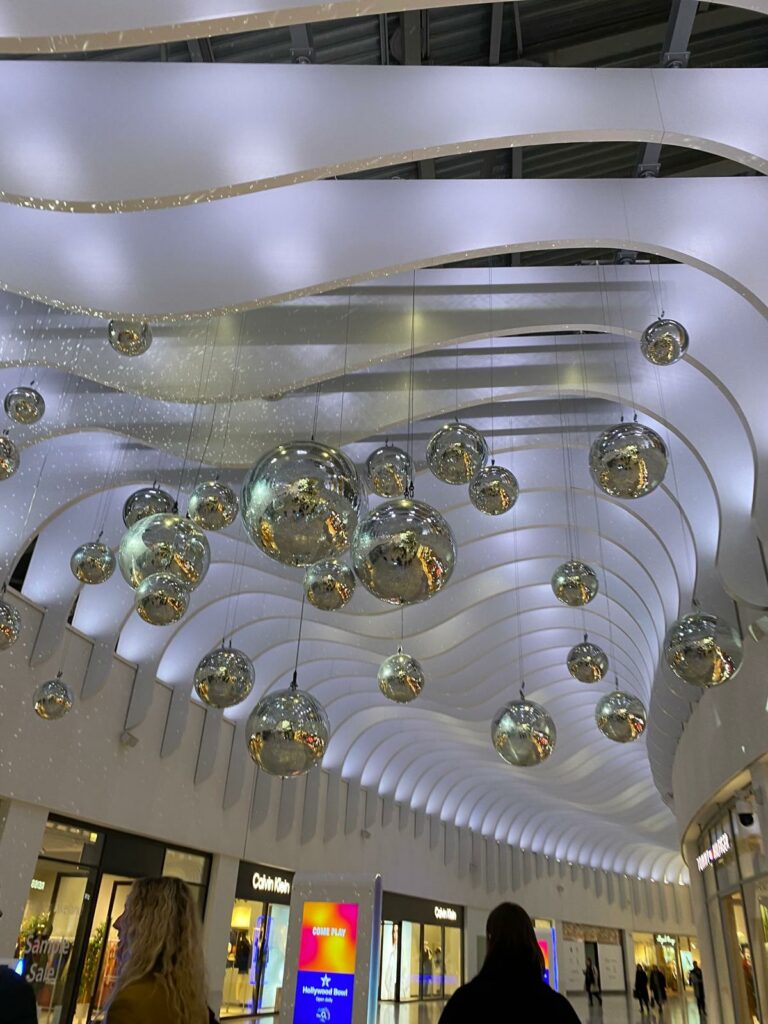From Landmark to Lifestyle Destination
24 years ago, a gleaming white dome was unveiled to mark the millennium. Originally known as the Millennium Dome, it symbolised a new era and stood as a striking landmark on London’s skyline, captivating the world with its futuristic design.
Fast forward to 2024, and this iconic structure has undergone an incredible transformation. Now known as The O2, it has evolved into a world-class destination that seamlessly blends dining, shopping, leisure, and entertainment.
The recent Revo Places and Spaces Reinvented study tour offered a unique opportunity to explore the latest evolution of The O2. Attendees were given a behind-the-scenes look at the design, strategy, and vision that have shaped this iconic venue into a global destination, attracting a diverse range of audiences.
Among those on the tour were Tom Tawell, Account Director; Elle Cade, Content Manager and Holly Savage, Content & Creative Executive, who shared their insights:
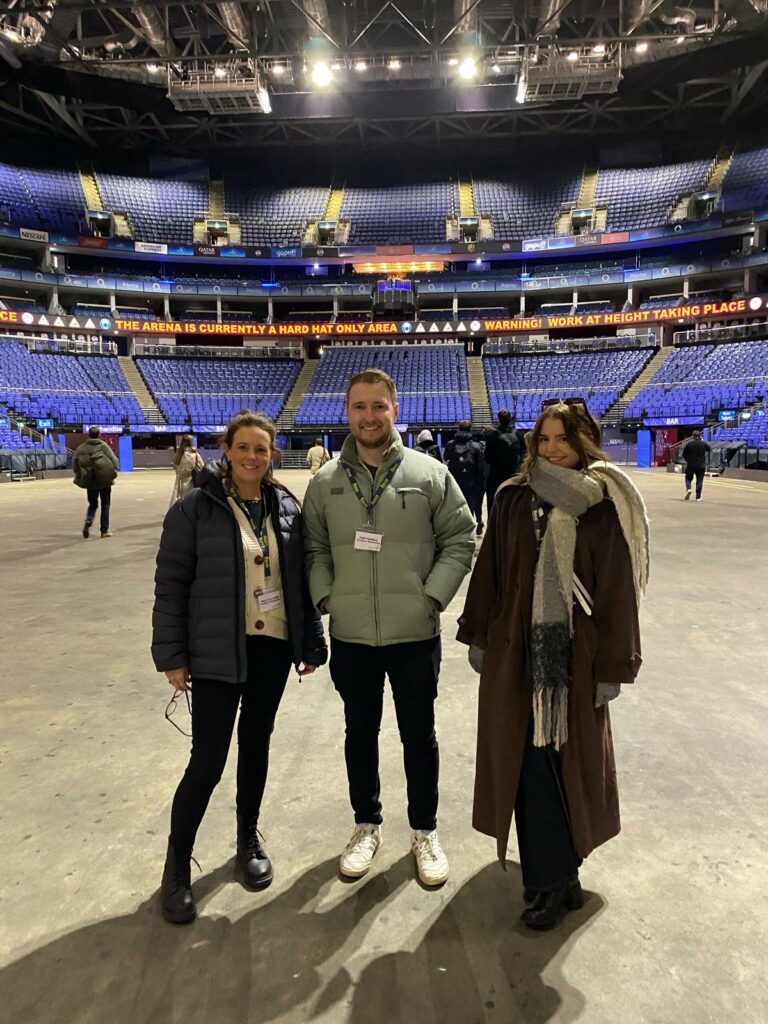
Elle reflects:
“It was fascinating to see how they’ve crafted marketing strategies to position The O2 as a multi-purpose destination, catering to such a diverse range of audiences through different stores, activations, and experiences. Whether it’s attracting luxury shoppers, concertgoers, or foodies, they’ve created an ecosystem where each audience feels at home. I also loved how they’ve woven the history and iconic design of the space into their creative and copy, creating such a strong and clear brand identity.
What I found particularly impressive was how sustainability is deeply embedded in their marketing approach as well. The O2 is not only making a lasting impression through its dynamic events and offerings but also through its commitment to environmental responsibility. The integration of sustainable practices, from offering dairy-free desserts to encouraging event hosts to adopt eco-friendly strategies, adds an authentic layer to their brand story. It’s inspiring to see how they have taken steps to ensure sustainability is not just a trend, but an integral part of their identity, and it’s reflected in how they communicate with their diverse audience”
Holly adds:
“24 years ago, I was one of five students selected by my graphic design teacher to visit a new landmark in London – a big white dome that had just been unveiled to mark the millennium. Back then, it was futuristic and full of promise, a symbol of something bold and exciting.
Fast forward to 2024, and wow, how things have evolved! That iconic dome has truly found its groove. What struck me the most during the tour was seeing how much thought has gone into creating a space that’s vibrant, dynamic, and relevant to today’s audiences. Whether it’s the golden steps leading to a flurry of disco balls, the mix of brands in the outlet, or the amazing entertainment lineup, every detail is crafted to deliver a seamless and exciting visitor experience.”
Tom shares his thoughts:
“The O2 is more than just an arena – it’s a global destination that continues to evolve. From rebranding the shopping outlet and supporting independent businesses to implementing creative leasing strategies and advancing towards net zero, The O2’s vision and forward-thinking approach are truly inspiring.”
A Destination with Distinct Zones
The O2 is more than just a dome; it’s a carefully curated space designed to serve four key experiences:
1. Delicious Dining – A hub for foodies, offering cuisines to suit every palate.
2. Luxurious Outlet Shopping – Home to premium brands and irresistible deals, perfect for shoppers looking for something special.
3. Leisure Activities – Including attractions like TOCA Social, an interactive football experience where we tested our (questionable) skills over some delicious snacks.
4. The Arena – A world-famous stage for global artists, hosting iconic performances that continue to shape its legacy.
These zones create a destination that appeals to a vast array of visitors, from families and tourists to thrill-seekers and concertgoers.
The tenant mix and leasing strategies for the outlet shopping area are intentionally designed to keep things fresh and appealing. On top of that, The O2 actively supports independent businesses while remaining mindful of sustainability goals including their journey towards net zero with innovative initiatives like on-site composting via a wormery.
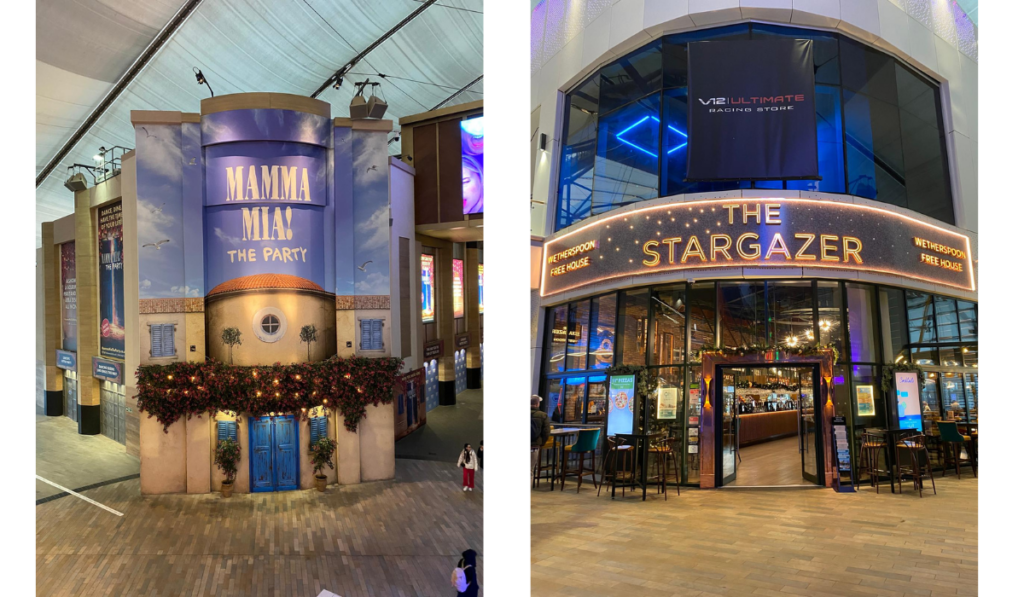
A Design Inspired by Time
The O2’s design is as intentional as it is iconic. Did you know that its 12 roof spokes represent the 12 months of the year, while its 352-metre diameter symbolises the number of days in a lunar year? These thoughtful design elements highlight Greenwich’s historic connection to time, referencing the area’s long-standing role in maritime navigation and global timekeeping. The O2 sits near the Royal Observatory, the historic home of the Prime Meridian, and these design details serve as a modern tribute to that rich heritage.
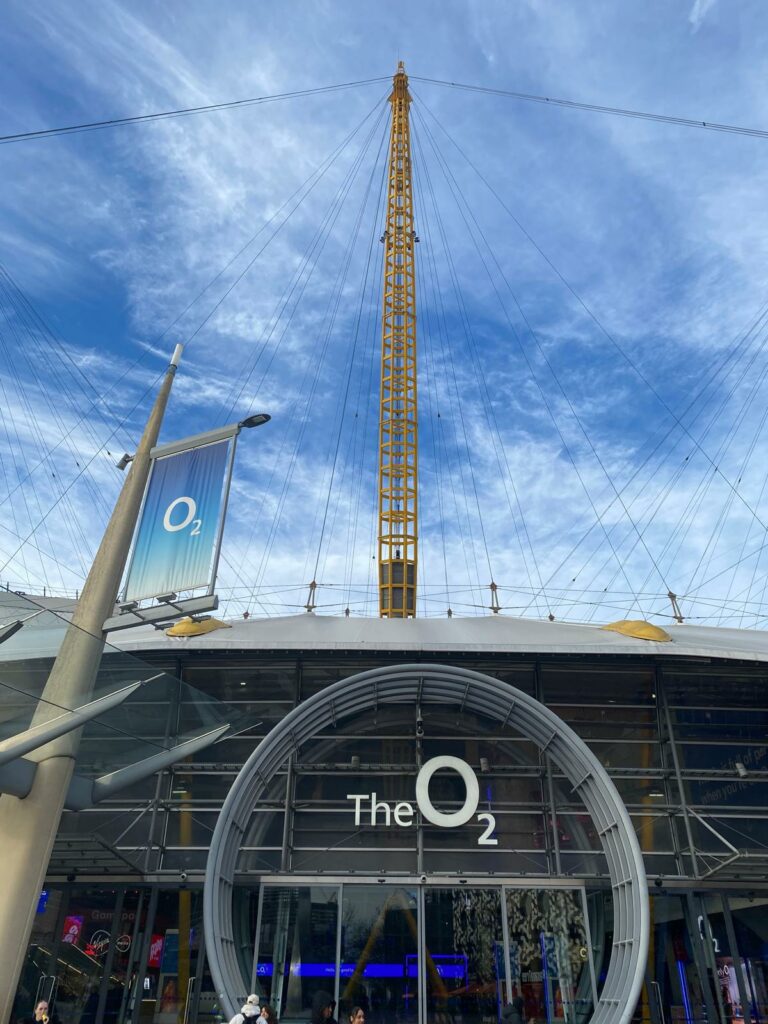
In addition to these symbolic features, the structure’s distinctive white canopy is not just a visual marvel – it was designed to evoke the sail of a ship, nodding to the maritime history of Greenwich and its legacy as a hub for exploration and discovery. This combination of artistry and purpose allows the O2 to be a cultural landmark while staying deeply rooted in its surroundings.
The O2’s architecture also cleverly integrates sustainability into its design. The building’s roof is a membrane structure, allowing it to collect rainwater and maximise natural light, further contributing to the venue’s efforts to reduce energy consumption. This blend of symbolism, sustainability, and functionality is just one example of how The O2 continues to honour its history while moving boldly into the future.

As it continues to evolve, The O2 remains a remarkable example of how design can be both aesthetically striking and deeply meaningful. Each element, from the structural choices to the overarching theme of time, serves as a testament to the thought and care that went into creating a space where history, culture, and innovation come together.
A Brand Rooted in Legacy
The O2’s marketing strategy stands out for its ability to connect with a broad and diverse range of audiences. From luxury shoppers exploring high-end outlets to concertgoers enjoying world-class performances and food enthusiasts indulging in unique dining experiences, The O2’s brand has found a way to speak to everyone. At its core, there is a clear and consistent brand story that balances the venue’s iconic past with its forward-thinking approach, creating a vibrant and dynamic atmosphere that appeals to all.
As Elle noted, their creative and copywriting bring The O2’s rich history and distinctive design to the forefront, effectively reinforcing its identity. The marketing reflects the evolution of The O2 from a historic landmark to a global lifestyle destination, blending elements of its origin – the Millennium Dome – with contemporary elements that signal innovation and adaptability. Whether through the curated selection of stores, immersive activations, or unforgettable events, it’s clear that The O2 knows how to tailor its message to resonate with a wide range of visitors while staying true to its foundational narrative.
The venue’s marketing doesn’t just sell a destination; it tells a story of transformation. By drawing on its architectural and cultural roots, The O2 continues to position itself as a symbol of both heritage and modernity, making it a place where visitors feel a connection to something larger than the sum of its parts. This blend of legacy and innovation creates a powerful and cohesive brand that feels both timeless and ever-evolving.
One of the most impressive aspects of The O2’s ongoing evolution is its commitment to sustainability. During the tour, Elle found the venue’s sustainability efforts particularly inspiring. Not only does The O2 aim for net-zero carbon emissions, but it has taken several meaningful steps to reduce its environmental footprint.
Sustainability at The O2: A Journey Toward Net Zero
For example, The O2 has an on-site wormery, which plays a crucial role in composting waste and reducing landfill contributions. This small yet impactful initiative is part of a broader sustainability framework the venue has implemented to ensure it operates as efficiently and responsibly as possible.
In terms of catering, The O2 has made conscious decisions to offer more sustainable options. Their venue catering doesn’t feature beef burgers, reducing the environmental impact associated with beef production, and they’ve also ensured that all their desserts are dairy-free, aligning with the increasing demand for plant-based and environmentally-friendly food choices.
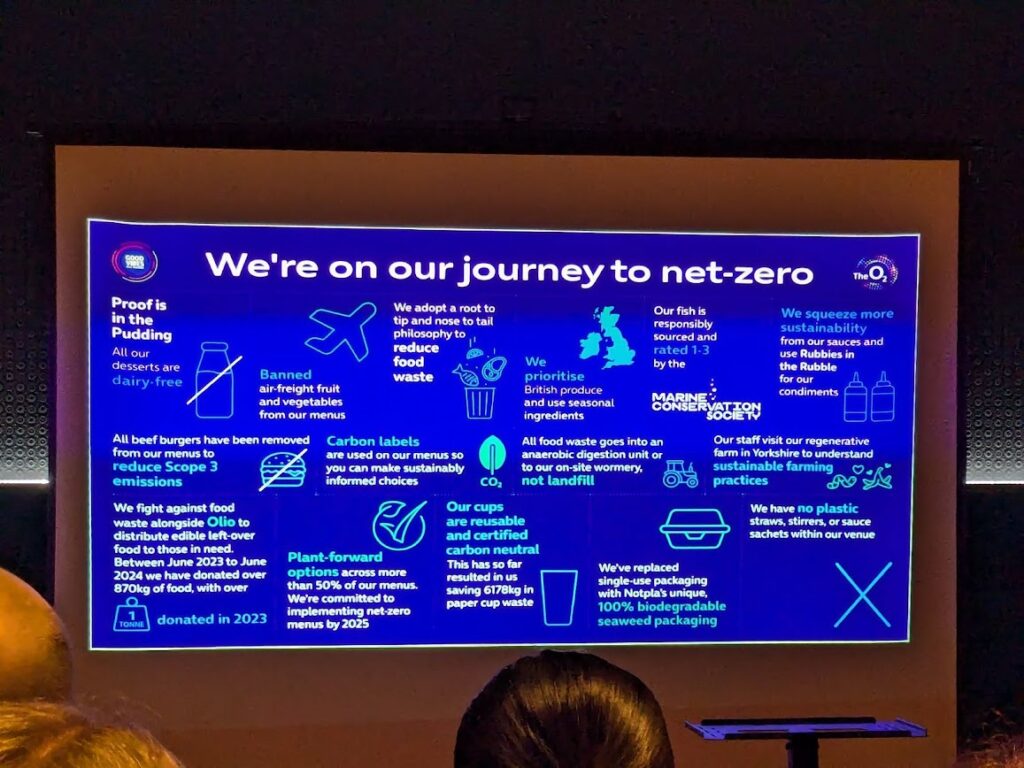
Additionally, The O2 has developed a framework for sustainability that encourages event hosts to adopt best practices for reducing their own environmental impact. This includes guidelines for minimising waste, using eco-friendly materials, and implementing energy-efficient solutions during events.
The venue’s sustainability initiatives have garnered attention on a larger scale, especially with recent events like The 1975’s concerts at The O2. These shows saw over 500 tonnes of carbon removed, a remarkable feat made possible by a combination of sustainable practices and collaboration between The O2, the band, and their team. Through initiatives like sustainable travel options for both performers and fans, as well as energy-saving measures implemented during the shows, The O2 has taken significant steps toward reducing the carbon footprint of live events.
Elle noted, “The O2 is not just talking about sustainability – they are actively building the future with it in mind, offering tools and frameworks that others can adopt to create more sustainable events and experiences.”
This commitment to sustainability aligns with The O2’s ambitious journey towards net-zero emissions. By integrating sustainability into both its day-to-day operations and it’s larger event framework, The O2 proves that delivering world-class entertainment and being environmentally conscious can go hand-in-hand.
Backstage Insights
One of the highlights of the tour was getting a glimpse into the management of events inside The O2. Tom shared some of the unique requests from performers that the team has accommodated over the years, including hanging tractors, horses, and saunas. These behind-the-scenes stories are a testament to the creativity and effort that goes into making The O2 a world-class venue.
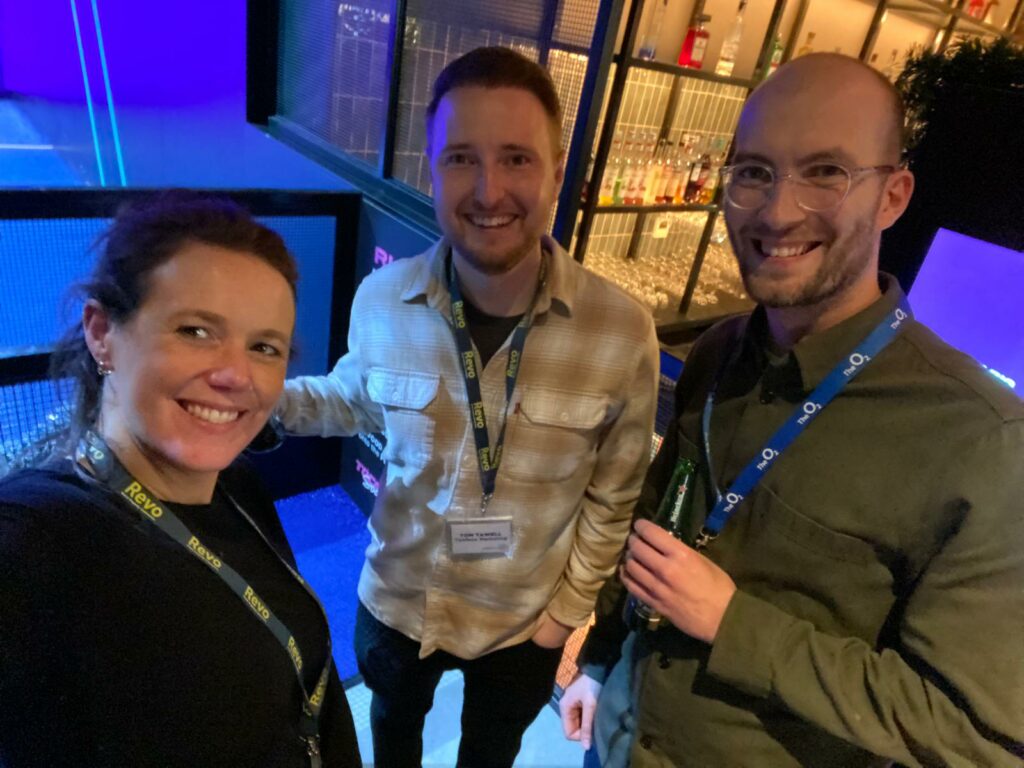
An Unforgettable Day
The day ended on a winning goal, both literally and figuratively. After exploring every corner of this multifaceted destination, the team put their football skills to the test at TOCA Social, a brilliant example of how The O2 seamlessly blends leisure with fun and community.
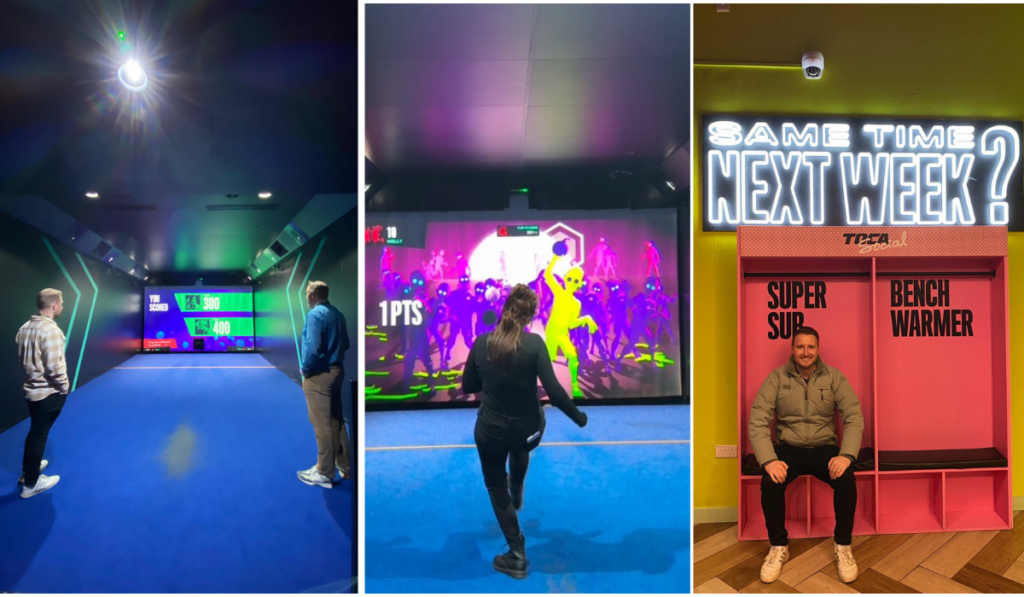
A Final Thought
As Team Pink reflected on this experience, they were struck by how much The O2 has grown – not just as a physical space but as a cultural and social landmark. It’s no longer just a building; it’s a lifestyle destination, a stage for creativity, and a testament to thoughtful design and strategy.
Whether you’re taking the golden steps toward the disco balls, shopping for luxury deals, or simply soaking up the energy of this dynamic venue, The O2 highlights the power of reinvention and the impact of embracing continuous evolution to create something truly iconic that stands the test of time.
